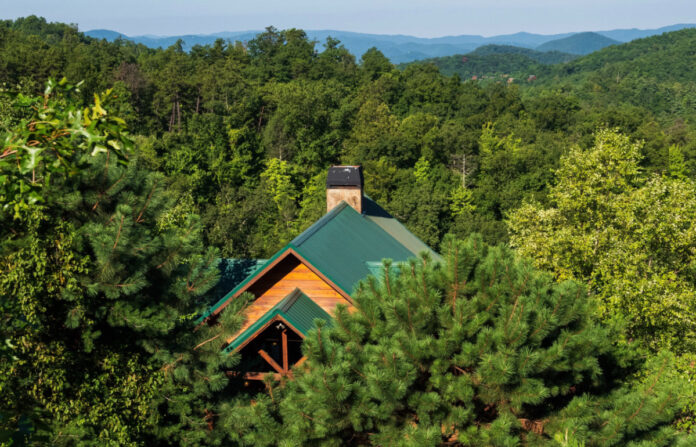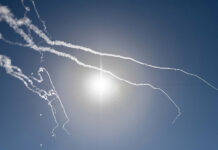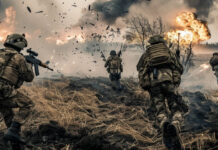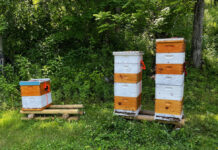Where we live, we can’t get a pizza delivered. Door Dash doesn’t come here. We can’t join Walmart+ because we are not in their service area. Neither UPS nor the post office will deliver to our house. We get our packages sent to our P.O. box in town or UPS leaves them at a neighbor’s house down the mountain before the asphalt ends.
Might I suggest you look for a home or a homestead in a similarly isolated and obscure location? Step away from the crowds of the city or suburbs, the hustle and bustle, the traffic and the competition, and move to a rural location. Not only will it be safer, you may find living in a small town or even in the middle of nowhere to be relaxing and enjoyable. It wouldn’t surprise me if your blood pressure drops, you sleep better, and your life expectancy grows. Plus, no one will encourage your kids to adopt a different gender.
Isolation is a Big Plus
Why would you want to live where it takes 20 minutes or more for the fire department, an ambulance or a sheriff’s deputy to arrive? Because isolation has many benefits. For a prepper, the tradeoffs are worth it.
For example, we are not on a nuclear target list. If Russia fired 1000 missiles at the U.S., I doubt one would go off within 50 miles. There are also no nearby nuclear plants that might melting down, and we have no targets of military interest.
During or immediately after the SHTF, millions of people who live in cities are going to try to leave and head for somewhere they think they can survive. Very few of them will come here because it is well off the beaten track, difficult to reach, and no one knows it exists. (We don’t get many tourists and most people have never heard of our county.) The only roads in are twisty mountainous road that would be easy to block or where an enterprising individual could blow up a bridge and cut off access from the outside world. There aren’t even any train tracks nearby.
In the small towns and villages around here, you get many of these benefits, plus pizza delivery. But you don’t get the isolation and privacy of living halfway up a mountain, on a desert mesa, in the middle of a forest, somewhere that requires a snow machine to access it in the winter, or some other remote location. That’s where you will be safest when the SHTF, but a small town far from the interstate is a good compromise.
Other Benefits
There are plenty of benefits of rural life you can enjoy before the SHTF, like peace and quiet. You can see the stars and night, and many places have a view during the day. We can’t hear our neighbors, and we know everyone who lives on our road. (When I lived in an apartment building in the city, I didn’t even know everyone on my floor.) It’s a small enough are that you know who’s trouble, who uses meth and, as one person said, who is “mostly honest” but might steal from you if presented with an opportunity too good to pass up.
People are also friendlier than they are in urban areas. Even a trip to the doctor is unhurried, and you have time to chat with the nurse. People here seem interested in you as a person, not as a box to check. Hospitality fourishes and you will be invited into people’s homes and churches. There are also many clubs and associations you can join and many causes for which you can volunteer.
I sometimes feel like I am living in the idealized world of a 1950s sitcom, and I find I like it.
Few Modern Problems
There are no homeless people on our corners or tents on our sidewalks. There is little violent crime. This is one of those places where someone gets murdered only once every 20 or 30 years and it’s the talk of the town for the next decade. We don’t have stop-and-go traffic. You don’t have to pay for parking. It’s safe for your kids to play outside. Many people have a livestock and a garden. Most of them own a pressure canner, and their kids are in 4H or FFA. I expect every home has a hunting rifle and probably a few other firearms.
Speaking of that, I enjoy having the ability to go outside and shoot guns in my yard and no one calls the cops. I usually call my closest neighbor to let him know before I do any target practice, and I don’t shoot on Sundays, but I do that as a courtesy; it’s not a requirement. There’s also plenty of game out here, especially deer and turkey, and hunting is part of the local DNA. People also hunt bear. There’s small game, too, and lots of fishing. You can fish a local stream or river, or drive a ways to a lake and catch bass.
What About Jobs?
People moving out of the city always worry about jobs in the country, but except for high-powered corporate jobs, there are plenty of employment opportunities, especially in healthcare and education. There are also ample manufacturing, blue collar, and customer service jobs, plus plenty of opportunities for skilled labor. Welders and mechanics seem to be always in demand, for example, and the building trades are frequently hiring. Of course, we have banks, shops, restaurants, insurance agencies, chains, and many small businesses, just fewer of them than more populated areas. You might take a pay cut working out here, but the cost of living is lower, and I daresay the pace of work is less demanding.
Our car insurance, property tax, and many other expenses are lower, for example. Rent is cheaper and housing values were lower, although they have climbed as people look to get out of the city and others turn houses into vacation rentals. Land is far cheaper than in high-density areas because there are few development opportunities. No one is going to outbid you on that 20 acre lot because they want to put up town homes. The requirement to have a septic system and well means lots can’t be too small.
The Advantages of Land
We have a little less than 20 acres, and while most of it is too steep to develop. I like it because it gives us elbow room. We know no one will build on that acreage, and it reassures me our spring water will remain clean. It gives me room to hunt and harvest trees if necessary. It is also a buffer zone. Other houses can’t encroach on us and no one is going to build a road or run a power line up there without our permission.
Besides isolation, which is because of our location, the amount of land we own gives us privacy. No one can see in our windows. I can pee off the deck and no one knows or cares. When I hide a cache on our land, no one is the wiser. I can bury rolls of silver coins under a rock and have a high degree of confidence no one is going to stumble across them or dig them up by mistake.
Freedom
I think what I like best about living here is that freedom. You can do whatever you want, as long as you do it on your land and on your time. There are few liberals and lots of patriots, many of whom served in the military. There are no Karen’s, just good people who, as often as not, are willing to lend a hand.
We moved here because it met my criteria for a survival location and because my wife figured she could tolerate it. It turned out better than we expected as both of us have made friends and are keeping busy. We feel safe and secure, and when some disaster hits the news, we joke about not having to bug out.
The world’s becoming a dangerous place. Politics is uglier than ever, and the risk of internal strife and government overreach is increasing. The dollar is being devalued and our deficits are reaching unprecedented levels. Global threat levels are also growing in multiple locations and the U.S. is weaker than ever. Nuclear war looks increasingly possible, even though we hope no one is stupid enough to launch the first one. The future looks uncertain, at best.
I’ve lived through some dangerous times, but this is one of the worst. Whether the next disaster is a new pandemic, a war in Europe, an economic collapse, a mass starvation event, an EMP attack, or the use of nuclear weapons, we rest easy knowing we are safer here than we have ever been before.







